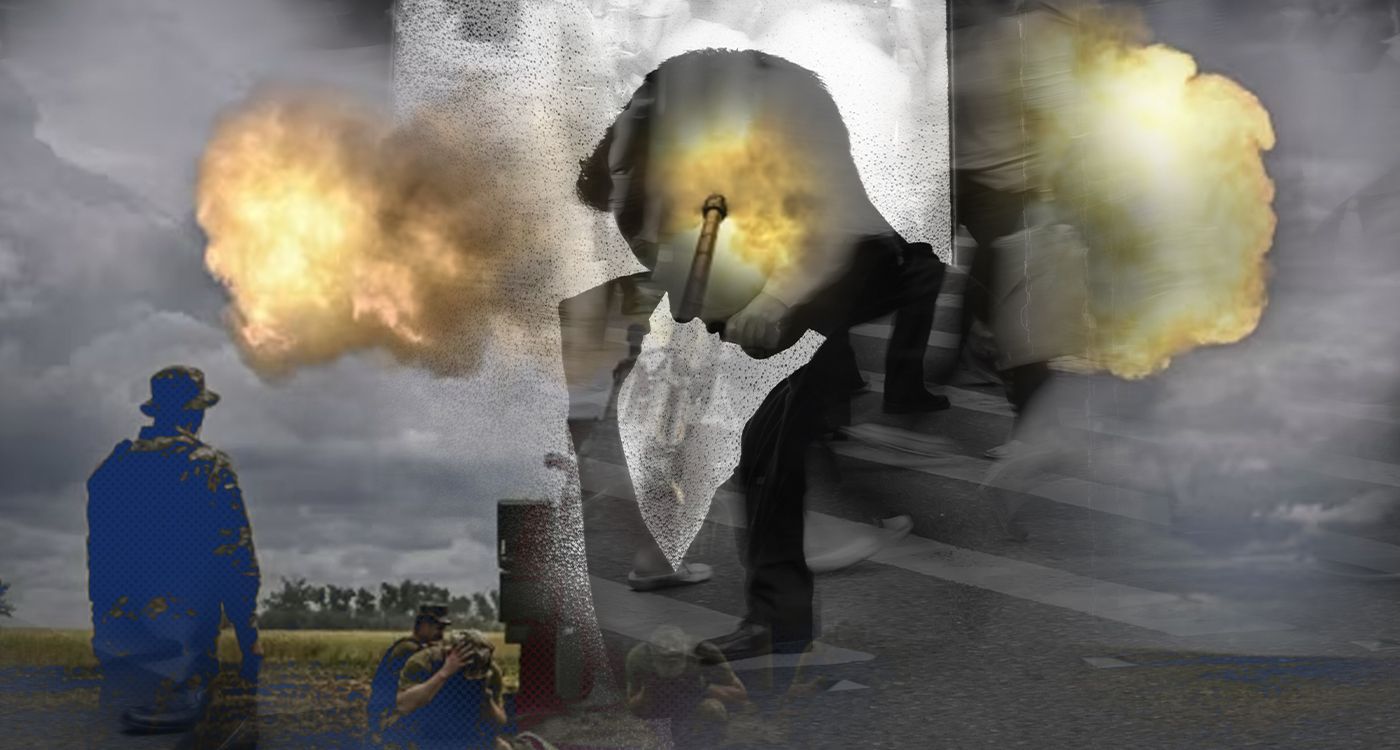
For over a year, most Lebanese have been enduring a war they never asked for. Beyond the constant surveillance drone hovering day and night, there are the nerve-wracking news reports of targeted assassinations happening just meters away from our cars, alongside bombings that jolt us awake, turning long, restful nights into a distant memory.
Chaos, uncertainty, bloodshed, and death — along with the images of destruction etched into our minds — have become our daily reality. These scenes of horror linger around us, replaying endlessly in our heads, becoming nothing short of stored trauma. As for the faint hope of a ceasefire, that light at the end of the tunnel is constantly pushed into an indefinite future, leaving us in deep despair.
During these challenging times, as our country faces yet another crisis, how are residents managing their daily lives? How are they coping psychologically? Are they consumed by stomach-churning fear and knots of anxiety, or are they going about their lives more or less normally? As the conflict intensifies among the involved parties, can we now say that panic has truly become a collective experience?
What About Collective Panic?
According to the National Academy of Medicine, intense collective fear is defined as a fear experienced “simultaneously” by all individuals within a population. This fear is “characterized by a regression of consciousness to a primitive, impulsive, and instinctive level, leading to reactions such as frantic flight, disorderly agitation, violence, or even collective suicide."
It typically occurs immediately after natural disasters or during wars, primarily affecting direct victims but also impacting those "involved," such as rescuers, witnesses, and even journalists.
However, this terminology is somewhat tricky, according to a psychologist-psychotherapist interviewed by This is Beirut, who requested to remain anonymous. "I feel a disconnection. Collective panic is temporary; it may last for a few days, but it depends on each person's history." If this state were to persist for months, it would more accurately be described as "collective anxiety," she explains.
Dr. Azar: Fears and Behaviors
Dr. Hana Azar, a psychiatrist at Rizk Hospital and Hôtel-Dieu de France (HDF), as well as a professor at Saint Joseph University, identifies "two distinct groups" in our war-torn society, both in the clinic and in the emergency room.
One group lives in targeted areas and is enduring a dramatic period where "the anxiety is collective." These people all suffer from "extraordinary" post-traumatic stress disorder, with some experiencing acute symptoms, while others show signs one or two months later, following a latency period, explains Dr. Azar in an interview with This is Beirut.
They are in a "state of shock," constantly faced with death and the horrors of war. They flee in groups under bombardment, and when they barely escape death, they witness loved ones dying before their eyes, with the wounded lying scattered along the roads.
Among the symptoms she observes are "anxiety disorders, insomnia, a heightened state of alertness due to the constant readiness to leave at any moment, and the fear of losing a loved one, leading to overwhelming sadness.
She recalls a mother who brought in her son after he experienced a panic attack while they were fleeing the South. "He suddenly started shaking and had palpitations," the mother explained. Dr. Azar notes that this is what is known as a "post-bombing panic attack."
The second group is aware that their region is not being directly targeted. However, they are exposed "to the nightly horrors, the constant sounds of bombs and drones, and the pervasive smells."
Dr. Azar points to residents in the neighboring areas of the southern suburbs — Hadath, Hazmieh, and Baabda — as an example. "Although they know they aren’t direct targets, they are continuously exposed to overwhelming visual and auditory horrors, and they can only sleep with the help of tranquilizers."
This population lives in a constant state of "dissociation." Their nights are "unbearable, compounded by the disturbing images on the news." Yet, when morning comes, "they have to go to work and try to live as normally as possible."
The psychiatrist cites the example of the Noueiri strike. "At the emergency room, we received patients in a distressing condition; they had witnessed three buildings collapse in an area they believed was relatively safe. This caused intense anxiety, and some even decided to relocate. They told me, “Even in this area, we've experienced tragedies!"
"I had two patients from Ain al-Remmaneh who shared that they had relived the horrors of the 1975 war." Ultimately, "everything triggers buried memories, causing pain for everyone," concludes the psychiatrist, emphasizing that even this population, spared for now, is "traumatized."
Nasrallah's Assassination: Unanimous Shock and Collective Anxiety
Issam, a 56-year-old Lebanese taxi driver, isn’t usually afraid because he "lived through the 1975 war." "However, I did experience a moment of shock," he recalls, referring to the five airstrikes that targeted Nasrallah's headquarters on September 27.
Camille, a 27-year-old Frenchwoman from Marseille who lives in Beirut and not typically "anxious," shares a similar sentiment. "Still, the building shook, and I felt a sense of danger," she says.
Marie-Michèle, a 75-year-old French-Lebanese grandmother, was home alone when the strike hit. "I covered my ears and sought refuge, curling up in the hallway — a reflex I developed during the war," she recalls. Shaking, she felt a sudden and overwhelming weakness, her heart racing uncontrollably. The trauma of that moment triggered the return of her post-traumatic stress disorder (PTSD). "On December 25, 1985, our house was bombed while we were sitting at the table, eating Christmas leftovers. My 8-year-old daughter threw a tantrum, demanding tuna. By the time the housekeeper took her to her room — at my request — shell fragments had already fallen onto her vacant chair. I was sitting just beside her at the round table, and I took the full force of the blast." Marie-Michèle clenched her teeth, enduring the pain. Weeks later, she relocated to Paris with her children, carrying 70 stitches in her head and a heavy load of repressed emotions.
She went on to explain, "Four days after Nasrallah's assassination, my symptoms resurfaced. It started with dizziness, insomnia, a profound sense of insecurity, and the overwhelming feeling that I might faint." She described experiencing similar reactions during the 2023 earthquake in Syria and Turkey, as well as the 2020 Beirut port explosion. "My face trembled with fear as I watched the windows of my 10th-floor apartment shatter around me."
Noé, 33, who grew up in the Alps, is accustomed to the sound of explosive charges used for controlled avalanches to secure ski slopes. "But that time was different; the fear was palpable and contagious, as the strikes were unlike anything I had ever experienced," he explains.
Clara, a 22-year-old Ethiopian domestic worker, stated that she was "surprised, but not more," as she is accustomed to the sound of bombings from her home country.
"Without my Xanax and antidepressants, I wouldn't have been able to manage my panic attacks," says Joseph, a 45-year-old Lebanese man.
As Dr. Azar recalls, "I was driving in front of the HDF when I saw orange smoke, and suddenly, my car became unmanageable, as if we were experiencing an earthquake. It seemed as though they had targeted something underground. People around me were in a state of panic, screaming and watching the chaos. Despite knowing it was in the southern suburbs, no one had any idea what was really happening. The sense of insecurity was overwhelming. We were unsure whether to stop or keep driving."



Comments